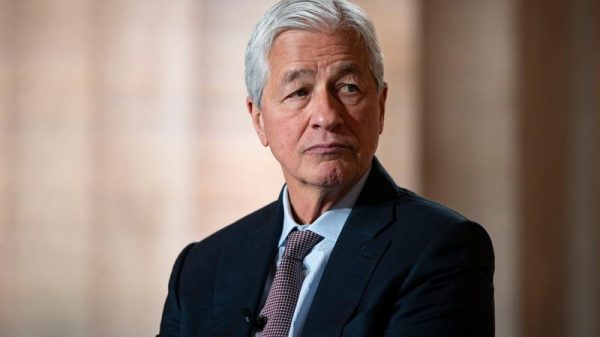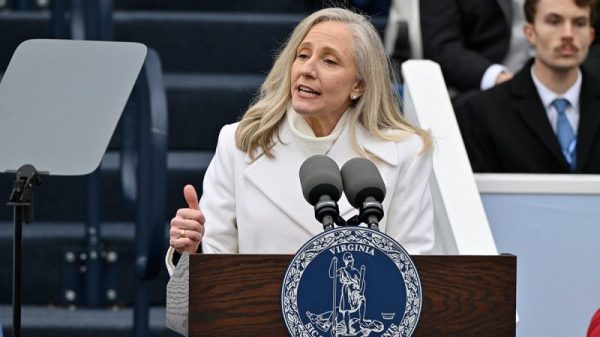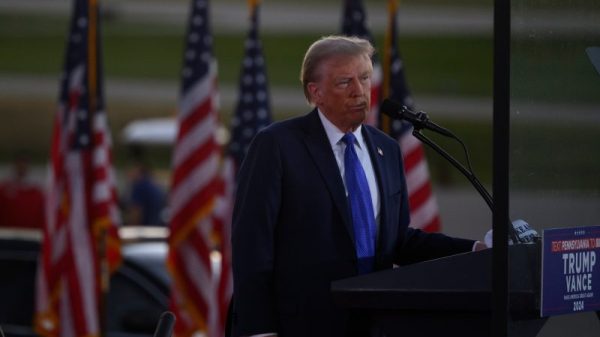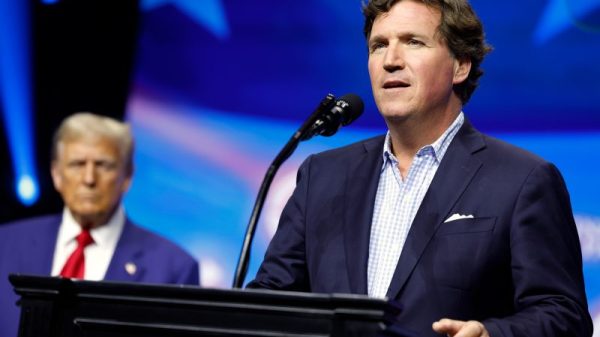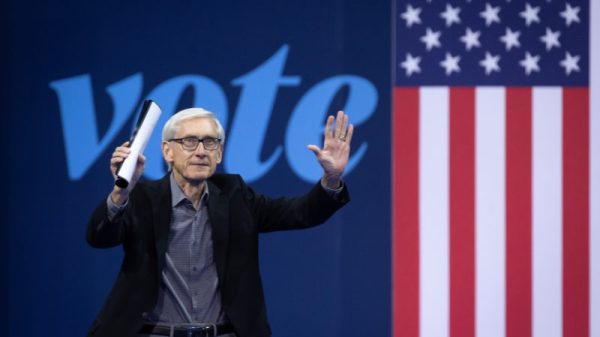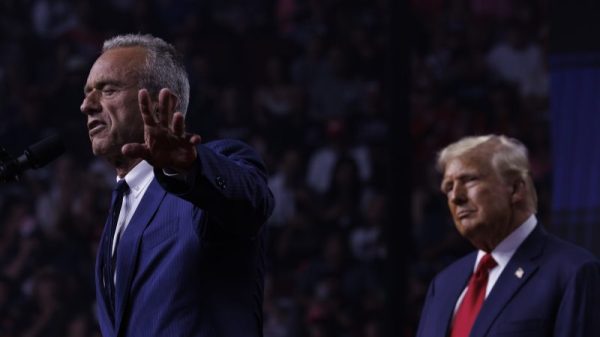President Donald Trump’s ‘big, beautiful bill’ failed to pass the House Budget Committee on Friday, in what appears to be a massive blow to House GOP leaders’ plans to hold a House-wide vote next week.
Republican Reps. Chip Roy of Texas, Josh Brecheen of Oklahoma, Andrew Clyde of Georgia and Ralph Norman of South Carolina all voted against the legislation.
A fifth House Republican, Rep. Lloyd Smucker of Pennsylvania, also switched his vote from ‘yes’ to ‘no,’ though it was a procedural maneuver that allows him to bring the legislation up again. Smucker told reporters he was ‘quite confident’ in the bill’s success.
House Budget Committee Chairman Jodey Arrington, R-Texas, has directed the panel to reconvene on Sunday night at 10 p.m. for another vote.
The committee met to mark up and debate the bill, a massive piece of legislation that’s a product of 11 different House committees’ individual efforts to craft policy under their jurisdictions. The result is a wide-ranging bill that advances Trump’s priorities on the border, immigration, taxes, energy, defense and raising the debt limit.
Emotions ran high in the hallway outside the House Budget Committee’s meeting room from the outset, however, giving the media little indication of how events would transpire.
Rep. Brandon Gill, R-Texas, who had been at home with his wife and newborn baby, surprised reporters when he arrived at the Cannon House Office Building after he was initially expected to miss the committee meeting.
His appearance gave House GOP leaders some added wiggle room, allowing the committee to lose two Republican votes and still pass the bill, rather than just one.
But at least four House Republicans went into the meeting warning they were opposed to the bill.
Shortly before the meeting was expected to begin, Roy, Norman, Clyde and Brecheen abruptly left the room while saying little to reporters on the way out.
Each came back a short while later and criticized the legislation in their opening remarks.
The fiscal hawks are frustrated about provisions curbing Medicaid in the bill not going into effect until 2029, and had similar issues with the delay in phasing out green energy subsidies from former President Joe Biden’s Inflation Reduction Act.
‘Only in Washington are we expected to bet on the come that in five years, then everything will work. Then we will solve the problem,’ Roy said during debate. ‘We have got to change the direction of this town. And to my colleagues and other side of the aisle, yes, that means touching Medicaid.
At one point, Norman came out of the room and called for the committee to recess in order to work through the fiscal hawks’ concerns.
‘If they call for a vote now, it’s not going to end well,’ he said, adding he was still waiting on commitments from House GOP leaders.
Minutes later, House Majority Leader Steve Scalise, R-La., who is not a member of the committee but had been meeting with holdouts, told reporters he wanted the legislation to advance through the Budget panel ‘as soon as possible.’
When asked about Norman’s comments, he said, ‘I just walked out of the meeting with him a few minutes ago as well. We’re working on some questions that Ralph and others have, and we’re going to be getting them answers as soon as we get them back from the Trump administration.’
Roy said on X after the vote, ‘We were making progress, but the vote was called, and the problems were not resolved, so I voted no. I am staying in Washington this weekend to deliver.’
‘Medicaid Work requirements must start NOW not 2029 & the Green New Scam must be fully repealed, as President Trump called for,’ Roy wrote on X.
Earlier, Trump took to Truth Social where he suggested those opposing the bill were ‘grandstanders’ and he pressed Republicans to unite behind it.
His message appeared to have little effect on the rebels, however — though it’s notable Trump is not in Washington, and is currently en route back from a diplomatic trip to the Middle East.
House Republicans are working to pass Trump’s agenda via the budget reconciliation process, which allows the party controlling the House, White House, and Senate to pass broad pieces of legislation while completely sidelining the minority party.
It does so by lowering the Senate’s threshold for passage from 60 votes to 51, provided the legislation deals with spending, taxes or the national debt.
Speaker Mike Johnson, R-La., has said he wants the legislation to pass the House by Memorial Day, with a goal of syncing up with the Senate and getting a bill to Trump’s desk by the Fourth of July.
That’s still possible if Republicans on the House Budget Committee strike an agreement to advance the legislation on Monday.
Afterwards, it would head to the House Rules Committee for any potential changes, before a House-wide vote sometime later in the week.
But Republican senators have already indicated they want to see some changes to the bill, meaning the House will need to hash out their differences with their counterparts in the upper chamber before the legislation is finished.
The House Freedom Caucus, which the bill’s four Budget Committee opponents belong to, has said its members would stay in Washington through the weekend to continue working.
‘We are continuing to negotiate. We are not leaving right now. We have been making progress and are continuing to work on the legislation,’ a Freedom Caucus spokeswoman told Fox News Digital.










